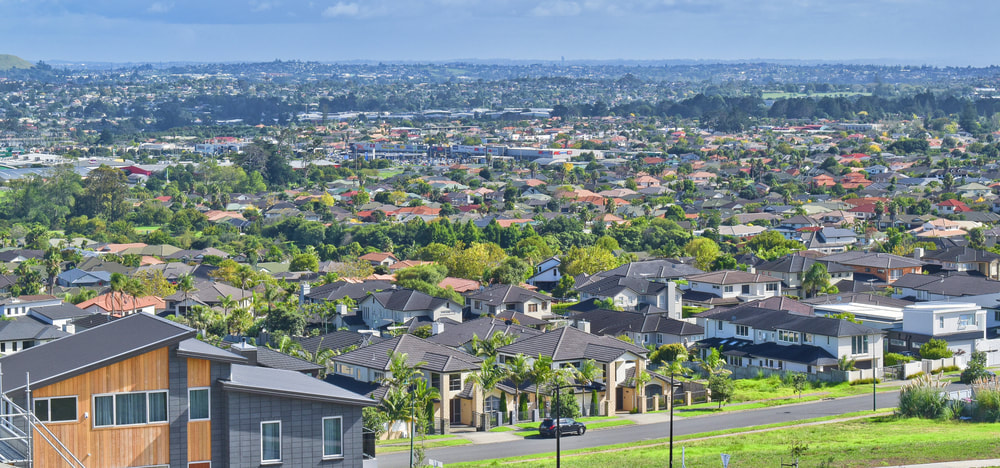It looks like the banks had been approaching the RB, lobbying individually for an early return of the rules, but afraid of making an individual decision to do so themselves for fear of not being followed by the other banks.
Now that the LVRs are back in place voluntarily, are we likely to see the recent extreme heat coming out of the housing market? Yes, in that although November will still likely show a sharp price increase, for December onward monthly price gains below the 3.5% of October and 2.6% of September are likely.
How fast might prices rise on average in the coming year? In the six months leading into March this year prices nationwide rose on average by 1.1% a month. In the seven months since April prices have risen on average by 1% a month, though with falls in April and May and rises in other months.
In all probability, on average in the coming year prices will again rise by about 1% a month, though with a risk that gains are higher than that.
Prices will keep rising despite the immediate return of minimum 30% deposits for investors and 20% for owner occupiers for a great variety of reasons. One is that interest rates will remain at extremely low levels. This not only makes the purchase of a house highly affordable for owner occupiers, but it also nudges more and more investors every day toward doing something more with their low risk bank term deposits.
There is currently about $200bn sitting in household bank accounts. Most of that money will stay there and not leave the banking system. But the low returns are going to affect people’s behaviour. A year ago, the average two-year term deposit rate was 2.6%. Now it is 0.8%. Over the same time period the average two-year fixed mortgage rate has fallen from near 3.6% to 2.5%.
Term deposit rates have fallen much more than mortgage rates, and that is why the drive by investors to diversify away from bank deposits will continue. But there are more than just low current returns which will be encouraging investors into other assets. We have yet to see discussion of an underlying change in mindset towards funding one’s retirement, but as awareness of this factor grows, it will drive even more property purchasing.
We Kiwis have traditionally viewed the use of invested funds in retirement as involving living off the income of the assets we might have, be they corporate bonds, bank term deposits, or some rental property. But that approach is not going to be possible in the future outside of property because cash returns on assets will average much lower in a permanently lower interest rates environment.
People are going to have to consciously plan to reduce their wealth far earlier in retirement than they would have been thinking. That is, starting in their 60s rather than their 80s. This is a big change not yet being discussed in New Zealand, but the implications are strong.
Money kept in a bank delivers zero capital gain. In fact, after inflation the wealth will decline, with further reductions caused by taxation of earnings. Property however delivers a capital gain which over the past 28 years has averaged 6.8% per annum across the whole country.
Going forward that average is likely to be closer to 5.5% given that we have ended a period of structural declines in interest rates and growth in house supply is better now than over the past three decades and likely to remain relatively high.
This capital gain is likely to continue in retirement, and that becomes important to people who still seem to place value on passing something on to the next generation and maybe the one after that as well.
Anticipated mild capital gain in retirement will assuage concerns about wealth declining as people age. Facilitating drawdown of this capital and retaining the ongoing gains will require much deeper development of the reverse mortgage sector, to the point where the interest rates charged do not prove such a persuasive argument against pursuing that course as is the case now.
The upshot of relevance for the next few years is that investors will continue to favour property, and they will continue to favour it even when the brightline test is inevitably extended from the current five years to at least seven years and probably ten years. Personally, I had expected such an extension to already have occurred by now and the move does look overdue.
Will the government go further than that to try and contain the pace of house price increases? Probably, but they will not make any change large enough to cause prices to go down. Falling prices might please a few first home buyers. But banks will lift deposit requirements if prices are falling, taking home purchase even further out of reach to those young buyers.
Plus, falling prices will hardly be greeted positively by recent young buyers. And all other property owners will feel some disquiet about their wealth declining. Therefore, all the government will ever try to do is slow the pace of price increase, not reverse it. In fact, the Prime Minister has already noted that she will be taking into consideration this term the desires of the over 400,000 people who switched in the most recent general election from National to Labour.
These people are probably property owners and the PM will want to retain as many as possible come the 2023 election.
Could the government tinker with the ability to deduct interest payments from rent before calculating taxable profit from property investment? That would be an extremely big move and if they did it would probably be spread out over a number of years. There is a risk that such a move would cause selling by investors which has never happened in the past in response to other moves which reduce landlord returns, such as ring-fencing.
But the big, big problem for the government is that the average occupancy of a rented property is higher than an owned one, and if the home ownership rate were to rise as some investors sell, more people would find themselves unable to secure accommodation.
Rents would rise and there would be even more pressure on the state housing list which has already tripled in size over the past three years. Over the coming months we are likely to see both Treasury and the Reserve Bank offer insight into measures which might go some way toward slowing the pace of average house price increase in coming years.
But in our new environment of extremely low interest rates, an expected migration boom once the borders reopen, and a coming shift in how people perceive their technique for funding retirement spending, any changes made are unlikely to do more than mildly ease the average pace of house price gain rather than reverse it.
Email me at [email protected] to subscribe to my free weekly “Tony’s View” for easy to understand discussion of wider developments in the NZ economy, plus more on housing markets.
By Tony Alexander



